Published: 15 February 2018
Whatever one’s personal understandings of a ‘lucky life’ might entail it seems most agree on a common desire – the desire for opportunity.
As individuals, as well as in our roles as parents, caregivers, aunts, uncles, teachers, in fact as citizens of the world, most of us share this desire that in the future we’ll ‘get a lucky break’, be ‘lucky in life’, or be ‘in the right place at the right time’ – aphorisms may vary but the sentiment resonates.
It gives rise to the question of whether luck is a random matter or whether any of us can skew the odds. Does chance play a pivotal role in who we are and what we can and can’t know? Can we raise our odds by having a well prepared mind?
To start, let’s consider just how lucky we are.
In planetary terms it seems we’re enormously fortunate. The fact that we have this sphere called Earth is according to scientists a remarkably lucky event. Whilst we know about supernovas, space rocks, gases and suns the fluke that gave us the planet we inhabit is due in part to a propitious event that formed the moon. It’s the moon’s size that provides the gravitational hand that stabilises the tilt of the Earth’s axis – no moon, no complex life forms. It requires a much deeper discussion about other scientific complexities to understand life’s origins. Suffice to say there are scientists who argue for chance claiming that the cosmic accident that gave us Earth defies explanation. So tick one for chance/luck/serendipity.
Birth... when it comes to our individual luck it seems being born is a matter of considerable chance. Consider the calculation by happiness engineer Dr Ali Binazir who claims that the chances of being born are 1 in 102,685,000 – a ten followed by 2,685,000 zeros! It seems safe enough to say that we’re enormously fortunate to a) be born and b) to have a planet like Earth where sentient life forms can flourish. Tick two for chance/luck/serendipity.
Birthplace… also plays a major role in humankind’s luck in relation to brain development. Scientists believe that whilst the structure of human brains across the globe is similar, different brain activity can vary remarkably. Previously it was assumed that alpha oscillations – the most fundamental human brain signature – happened for all people. Yet a research project in rural India demonstrates that in communities untouched by technology and modernisation people don’t register alpha oscillations. In short what the research indicates is that people without alpha oscillations do not have the capacity to deal with complex stimulations since the need never arises.
The 400-person study confirms the impact of environment and lack of income on a person’s ability to know and develop. Researcher Tara Thiagarajan suggests income is just a proxy for what we can afford to access in the world. She explains, “if we want to understand what a human brain is, it’s not one human brain, but we need to understand the spectrum of human brains, otherwise we really can’t understand what it means to be human today”. Thiagarajan’s study opens the floodgates on questions taking us into religious and doctrinal discourses about karmic lives and future existences. It also raises the importance of brain stimulation, what French biologist Louis Pasteur referred to as the ‘prepared mind’.
It seems it’s getting quite complex to tick yes or no to chance/ luck/serendipity.
Rather, a more apposite proposition may be that given the disproportional amount of luck we’ve already experienced, does it suggest some kind of obligation to make the most of the life we’ve been given? And if so, who or what might the obligation be toward and what might activating it look like? Or, does any of this matter at all? This is the stuff of philosophy and art.
Like any discipline the arts can play a critical role in creating understanding and building individual and collective potential. But like any discipline, luck is not a substitute for learning. Art operates within a domain of knowledge with particular languages and ways of operating and like anything worthwhile it takes time and engagement to become literate.
For audience members and participants engaging willingly and with curiosity in the arts the evidence is clear and points to numerous beneficial outcomes. Whether it’s playing an instrument, singing a three-part harmony, participating in a dance class or reading a novel, you’ll become more learned, with new neurological pathways forged, some even say you’ll become luckier.
Here’s what the research says about engaging in art:
- SMARTER – guaranteed improved cognitive abilities by up to 17%
- BETTER AT READING AND MATHS – improved reading and maths skills by the age of nine
- FOCUSED – better concentration and organisational skills
- HEALTHIER – improvements in overall health by 38%
- BETTER EDUCATED – being three times more likely to get a tertiary education
- MORE EMPLOYABLE – stay employed longer than average student
- BETTER CITIZEN – 18% less likely to be a young offender
The claims made here are evidenced in a research report entitled Imagine Nation. It’s a fascinating read making a strong and coherent case for why we need art in daily life. Signatories of the report include uber talented choreographer Wayne McGregor CBE who wowed us with his imaginative approach integrating movement and literature in his beautiful work Woolf Works, as part of the 2017 QPAC International Series presentation of The Royal Ballet. As well as Sir Ken Robinson whose TED Talk Do Schools Kill Creativity has been viewed by over 48 million people. All signatories agree with the report’s findings that the arts are not an additional extra when there is a market surplus, “they are not an add-on, or a nice to have, but are a part of the fabric of society… young people have a right to experience the best… given the opportunity to make their own contribution to the continual reshaping of civilisation”.
Let’s turn to one of the United Kingdom’s great film makers and a champion of arts education Lord Puttnam CBE, the Chair of The Cultural Learning Alliance. Speaking practically Puttnam outlines the domain skills offered by and through an education in culture and the arts. “Learning through culture and the arts leads to creative thinking, confidence and problem solving – all skills which are prized by employers and which young people need. If we fail to offer our young people the opportunity to participate in the arts and culture, then we fail to support them in becoming the leading thinkers, innovators, creative business and community leaders of the future.”
The Imagine Nation’s cri de coeur that each generation be given opportunities to contribute to the ‘reshaping of society’ gets to the heart of who and what we might have an obligation towards. As well as the intrinsic value arts and culture offer – pleasure, aesthetic enjoyment, beauty and meaning – the arts also offer the instrumental skills that Puttnam alludes to above. It’s when the intrinsic and the instrumental work together that the paradoxes of shaping civilisation emerge encompassing playfulness and seriousness, chance and intentionality, serendipity and zemblanity, purposefulness and luck.
Art is one of the most powerful demonstrations of paradox. Theorist Susanne Langer writes that philosophical and art questions “…are not by their nature insoluble. They are, indeed, radically different from scientific questions, because they concern the implications and other interrelations of ideas, not the order of physical events; their answers are interpretations instead of factual reports, and their function is to increase not our knowledge of nature, but our understanding of what we know”. Langer’s elegant explanation of such differences makes one feel extremely fortunate that artists, scientists, thinkers point towards our obligation where luck, chance, serendipity paradoxically sit happily alongside misfortune, intentionality and zemblanity.
Art is one of the most powerful demonstrations of paradox
REFERENCES
Malcolm, L., All in the Mind Brain Diversity and Modernisation http://www.abc.net.au/radionational/programs/allinthemind/brain-diversity-andmodernisation/9149172 (accessed 19 November 2017).
Chance: the science and secrets of luck, randomness and probability, edited by Brooks, M., London: Profile Books.
Cultural Learning Alliance, Imagine Nation: the value of creative learning https://culturallearningalliance.org.uk/about-us/imaginenation-the-value-of-cultural-learning/ (accessed 18 December 2017).
Langer, S., (1953) Feeling and form: A philosophy of art developed from philosophy in a new key. New York: Charles Scribner’s Sons.
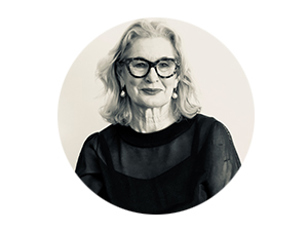
Judith McLean
Professor Judith McLean is the Chair in Arts Education, a joint appointment between Queensland University of Technology (QUT) and the Queensland Performing Arts Centre (QPAC) where she held the role of Scholar in Residence until September 2021. Judith’s career is distinguished by her breadth and diversity of experience as an arts educator, artist and cultural leader across Australia. She is a member of the Australia Council’s Major Performing Arts Panel and Chair of Dancenorth, a contemporary dance company based in Townsville.
You May Also Like
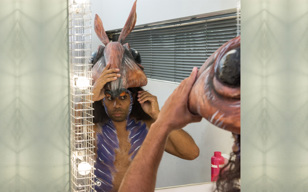
Behind the Scenes
Our Behind the Scenes series takes you on an exclusive journey into the heart of QPAC, where the magic of the stage comes to life.
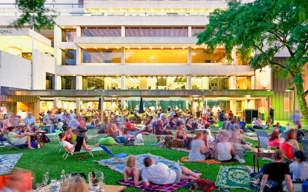
Projects and Events
QPAC is a creative hub where communities come together to celebrate, learn, and grow through the transformative power of the arts.
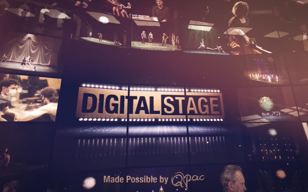
Digital Stage
On-demand performances, live streams and behind-the-scenes.
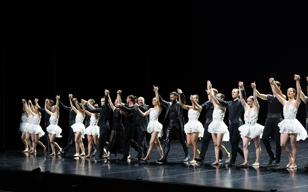
Support
Support QPAC to help nurture and celebrate Queensland's rich artistic heritage while fostering innovation and creativity for the future.


